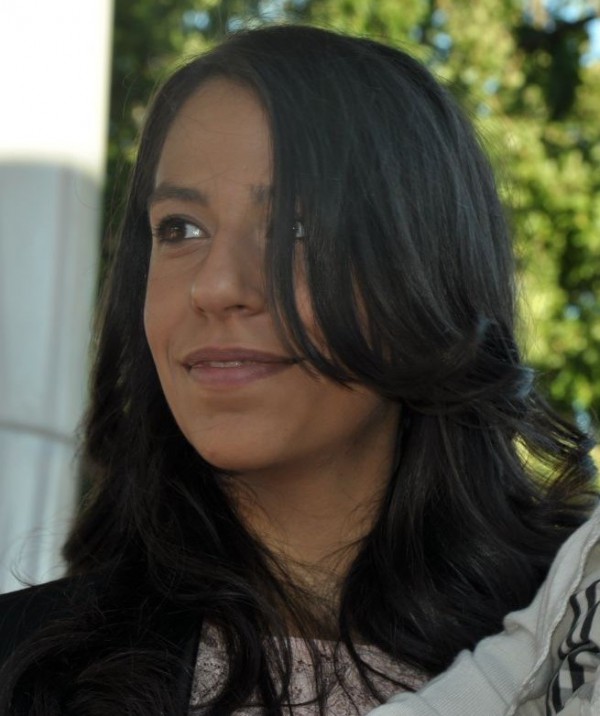Chiara Ricca
Interview by Carey Sargent, EPFL, NCCR MARVEL
The biggest challenge facing women scientists is…
I think there’s a little still a bit the idea that women have less aptitude for science than men. I don’t know if you remember a couple of months ago there was an Italian professor speaking at CERN who gave a presentation in which he said basically that women are less than intelligent than men for doing physics. So I think that this is still a sort of social background that is there. I think also that pregnancy can be a different challenge that men obviously don’t have to deal with and I think that this can be a real turning point in the career of a woman. I have never really experienced anything, in my group women are not treated differently. We are also basically 80% women and this is not the standard. Still, maybe this is a sign that things are slowly changing.

I chose a scientific career because…
I decided to study chemistry because in high school I had a super nice female teacher with chemistry and that’s how I ended up loving chemistry and then through my university and PhD it was a natural continuation. I always liked studying and reading and trying to figure things out more than the practical side, and this also probably why I wound up doing something more theoretical or computational rather than ending up in the lab.
If I weren’t a scientist, I would be…
If I could go back and study something else, I think I would decide to study psychology. It’s really interesting for me, this idea of how you can help people figure out their problems, by talking with them and helping them analyze themselves. Understanding how the mind works is something that fascinates me. There are mechanisms that are not rational, there is this other side of the brain that is not scientific.
My most exciting MARVEL discovery to date has been…
My MARVEL discovery from a scientific point of view would be DFT methods to improve the accuracy of defect calculations in materials. We call it a self-consistent site-dependent DFT approach to study defects in transition metal oxides or transitional metal materials in general. And I think that that wouldn’t have been possible without the strong collaboration we have in MARVEL, in particular that we have with Iurii Timrov, Matteo Cococcioni and Nicola Marzari.
My top two papers...
We will soon publish a paper about the method we developed in MARVEL, it will be published in Physical Review B.
A paper that I find particularly inspiring is one by Nicola Spaldin where she basically explains polarization. She manages to explain something so complex in a way that’s so easy to understand. It’s called a “Beginner’s Guide to Modern Theory of Polarization”.
